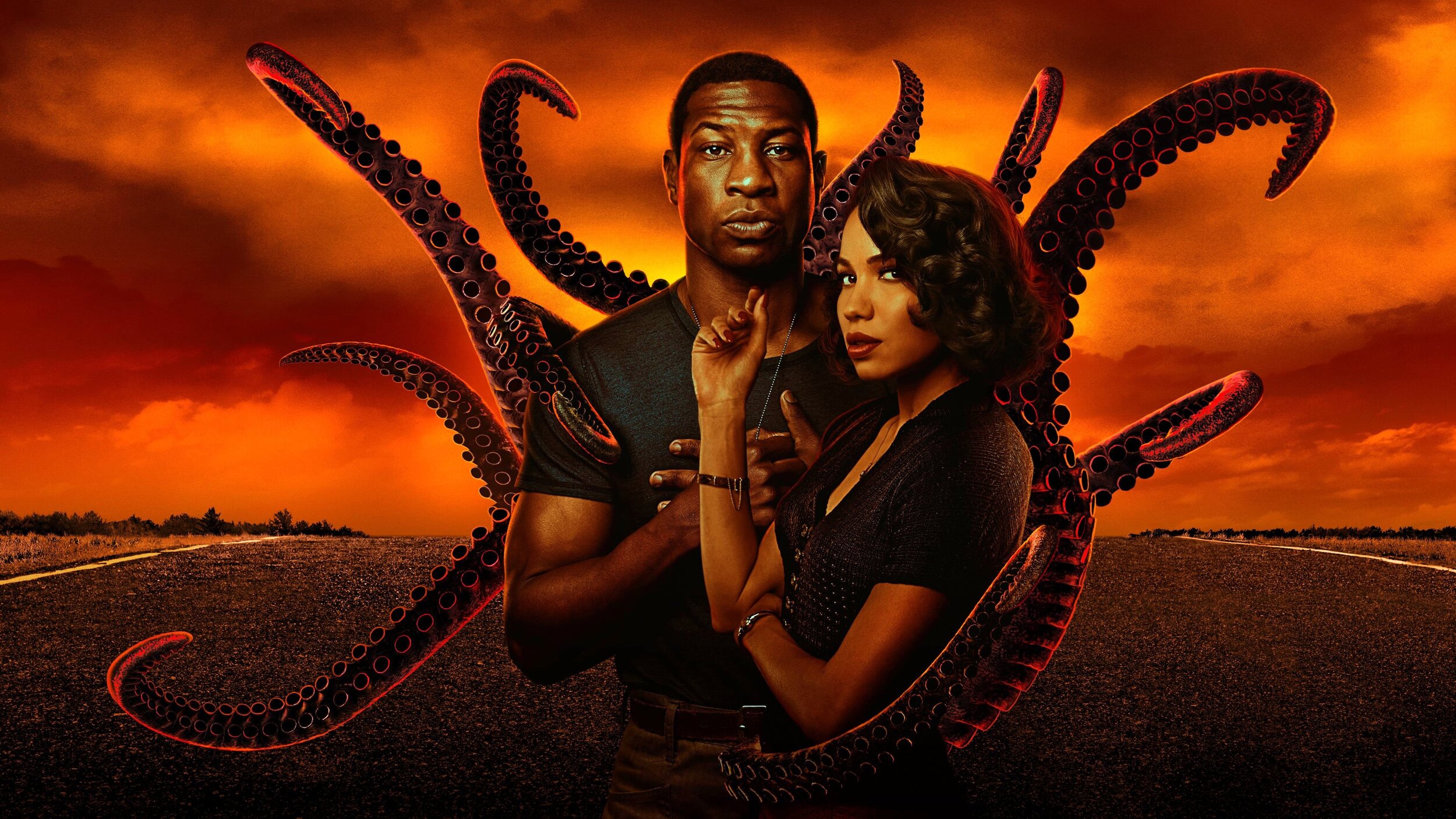Lovecraft County - Season 1
HBO“Little Negro boy from the Southside of Chicago don’t notoriously get to do that,” Jonathan Majors’ Atticus “Tic” Freeman expresses as he, along with a fellow Black woman, are forced to walk across a highway after their bus breaks down. Bound for home, our protagonist has a profound fascination with pulp stories, despite the exclusion of and blatant prejudice towards black people in its most renowned creations of the same genre, particularly H.P. Lovecraft’s. It’s a fact he acknowledges, but he remains fond of them, nonetheless. Because who doesn’t love a simple man going on otherworldly adventures and overcoming insurmountable odds to defeat evil and save the day?
Without a doubt, creator and showrunner Misha Green has this statement in mind as she adapts Matt Ruff’s book of the same name. Lovecraft Country is a wild attempt to reclaim a genre that has sidelined people who aren’t identified as white by having persons of color become centerpieces of their own wild journeys in conquering evil. The series stands out on its own with its unique, semi-anthological episodic structure, imitating the traditional blueprint of an old pulp magazine while keeping the same cast of characters. It provides an opportunity to inform the audiences of Black history by inserting a semi-revisionist take on it without pulling any punches in depicting devastating tragedies.
However, Lovecraft Country has a large array of issues from a narrative standpoint. First and foremost, the pacing is arguably its most divisive aspect. There’s no sin in being adventurous and creative, which the series is rarely devoid of being. It allows for a more unpredictable and explorative nature of storytelling, as there is constant blending of many genres in the series’ stand-alone side-quests. Nevertheless, it never truly adds up to the greater whole, and leaves many elements and ideas unable to come into fruition. The inconsistencies are made up of odd editing choices with several inappropriate needle drops, and rushed conclusions of story arcs. A few of these conclusions, especially in episode five, are even as infamous and problematic as they are distressing to witness. Can writers stop with the rape-revenge plots? Like seriously, this is not helping anyone.
It’s a shame, because Misha Green and her team have such an unbelievably imaginative vision. It’s quite rare to see a season of television with this much material and vigor. Some of the imagery and situations here are legitimately beyond nightmarish and gruesome. It has some of the best and most outlandish body horror in recent times, and yet how it relays exposition is banal and humdrum. The presentation is so hit-and-miss it makes one wonder: if Green decides to let their stories have their own breathing room, remove the troublesome material and apply a slower, more methodical approach, would it be more successful? The answer is yes. Sure, losing the hurried pacing removes the pulp fiction element that the series is going for, but with it, the series sacrifices proper development of its characters and mythos.
Wildly uneven it is, but the aspects that aren’t uneven are the performances, which have all been great. Jamie Chung and Aunjanue Ellis are unreasonably underutilized in the series but are still given moments to shine with their character-centered episodes. Although his role also doesn’t come full circle, Michael Kenneth Williams pushes a heartbreaking showcase of his acting talents, playing a broken man of oppressed, unstable emotions revisiting a past he can’t reverse out of in the series’ penultimate episode. However, Jurnee Smolett outshines everyone else as Letitia Lewis, playing her as a strong and determined woman who maintains her composure in the series’ most stressful moments while still displaying genuine terror.
At its best moments, Lovecraft Country should be celebrated for bestowing people of color opportunities to be part of a genre that has often excluded them in playing a major role of. It’s a provocative reminder of the despicable history and horrors of racism in America, its malicious threat evermore present and intimidating than the supernatural itself. The series utilizes recordings of poetry and speeches from prominent figures in the Black community such as James Baldwin in place of licensed songs – an artistic choice that is gladly appreciated. The series remains quite an intriguing and informative piece of entertainment despite its plentiful of disreputable flaws.


